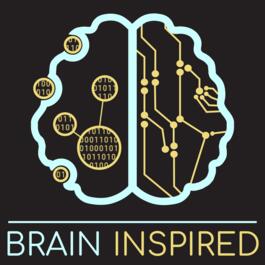
BI 196 Cristina Savin and Tim Vogels with Gaute Einevoll and Mikkel Lepperød
Support the show to get full episodes and join the Discord community. The Transmitter is an online publication that aims to deliver useful information, insights and tools to build bridges across neuroscience and advance research. Visit thetransmitter.org to explore the latest neuroscience news and perspectives, written by journalists and scientists. This is the second conversation I had while teamed up with Gaute Einevoll at a workshop on NeuroAI in Norway. In this episode, Gaute and I are joined by Cristina Savin and Tim Vogels. Cristina shares how her lab uses recurrent neural networks to study learning, while Tim talks about his long-standing research on synaptic plasticity and how AI tools are now helping to explore the vast space of possible plasticity rules. We touch on how deep learning has changed the landscape, enhancing our research but also creating challenges with the "fashion-driven" nature of science today. We also reflect on how these new tools have changed the way we think about brain function without fundamentally altering the structure of our questions. Be sure to check out Gaute's Theoretical Neuroscience podcast as well! Mikkel Lepperød Cristina Savin Tim Vogels Twitter: @TPVogels Gaute Einevoll Twitter: @GauteEinevoll Gaute's Theoretical Neuroscience podcast. Validating models: How would success in NeuroAI look like? Read the transcript, provided by The Transmitter.Support the show to get full episodes and join the Discord community. The Transmitter is an online publication that aims to deliver useful information, insights and tools to build bridges across neuroscience and advance research. Visit thetransmitter.org to explore the latest neuroscience news and perspectives, written by journalists and scientists. This is the second conversation I had while teamed up with Gaute Einevoll at a workshop on NeuroAI in Norway. In this episode, Gaute and I are joined by Cristina Savin and Tim Vogels. Cristina shares how her lab uses recurrent neural networks to study learning, while Tim talks about his long-standing research on synaptic plasticity and how AI tools are now helping to explore the vast space of possible plasticity rules. We touch on how deep learning has changed the landscape, enhancing our research but also creating challenges with the "fashion-driven" nature of science today. We also reflect on how these new tools ha
From "Brain Inspired"


Comments
Add comment Feedback